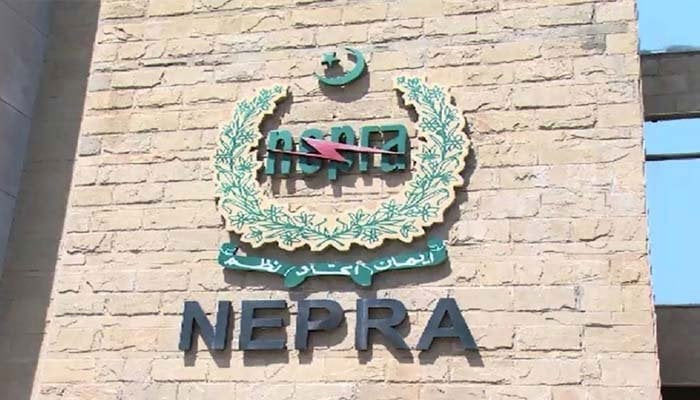Nepra raises alarm over power sector ‘vulnerabilities’
Report notes instances of transformer overloading, requiring KE’s proactive measures to prevent potential issues
ISLAMABAD: The National Electric Power Regulatory Authority (Nepra) has sounded an alarm, revealing critical vulnerabilities in Pakistan’s power sector.
The evaluation reports for FY2023-24, covering generation, transmission and distribution, expose a concerning mismatch between capacity and actual output, raising serious concerns about the sector’s ability to meet the nation’s growing energy needs.
The generation sector report reveals a worrying trend -- despite an installed capacity of 45,123.9 MWs, a significant portion remains under-utilised. This under-utilisation is exacerbated by an over-reliance on imported fuels like RLNG and coal, making several thermal plants vulnerable to global price fluctuations and jeopardising Pakistan’s energy security.
While renewable energy sources are steadily growing, their intermittent nature poses challenges for grid stability and cost-efficiency, further complicating the under-utilisation issue.
The report underscores an urgent need for strategic reforms to optimise the existing assets, modernise the grid and effectively integrate renewable energy sources.
The transmission sector report presents a mixed bag. The National Transmission and Despatch Company (NTDC) has made strides in improving system reliability, with reduced interruption durations and frequency. However, the report also points to significant constraints in the transmission system, hindering the efficient evacuation of power from cost-effective plants. This leads to increased reliance on more expensive generation options, ultimately impacting consumers.
Bottlenecks in transmitting power from the southern generation hubs to the northern load centres further exacerbate the issue. Adding to the woes are delays in critical transmission projects, which impact grid stability and capacity enhancements.
The report emphasizes the need for grid capacity enhancement, adoption of modern switchgear, real-time monitoring, and improved project management practices.
Amidst these challenges, K-Electric (KE) stands out with a relatively positive performance. The report acknowledges KE’s high reliability on its 220 kV transmission network and its significant efforts in enhancing cyber security defences. However, KE faces challenges with tie line reliability.
Additionally, the report notes instances of transformer overloading, requiring KE’s proactive measures to prevent potential issues. Despite these concerns, KE’s overall performance, particularly its efforts to increase interconnection capacity with the national grid, offers a glimmer of hope for electricity consumers of Karachi. Delving deeper into the reports, one finds a scathing critique of the Discos owned by the government. Nepra highlights their dismal performance, particularly in managing Aggregate Technical and Commercial (AT&C) losses. Lesco, Iesco, Mepco, Gesco and other government-owned Discos face scrutiny for their high losses, inefficient billing systems and poor governance. These inefficiencies not only contribute to the sector’s financial woes but also impede its overall growth and modernisation. Interestingly, the reports also mention the World Bank and Asian Development Bank (ADB), both of which have expressed concerns over the performance of the government-owned Discos. The World Bank, in particular, has been vocal about the need for urgent reforms in the distribution sector, emphasising the importance of reducing losses, improving governance and enhancing customer service. In contrast, the reports acknowledge KE’s efforts to reduce losses and modernise its distribution infrastructure, aligning with the recommendations of international organisations.
-
 Pamela Anderson, David Hasselhoff's Return To Reimagined Version Of 'Baywatch' Confirmed By Star
Pamela Anderson, David Hasselhoff's Return To Reimagined Version Of 'Baywatch' Confirmed By Star -
 Willie Colón, Salsa Legend, Dies At 75
Willie Colón, Salsa Legend, Dies At 75 -
 Prince Edward Praised After Andrew's Arrest: 'Scandal-free Brother'
Prince Edward Praised After Andrew's Arrest: 'Scandal-free Brother' -
 Shawn Levy Recalls Learning Key Comedy Tactic In 'The Pink Panther'
Shawn Levy Recalls Learning Key Comedy Tactic In 'The Pink Panther' -
 King Charles Fears More Trouble As Monarchy Faces Growing Pressure
King Charles Fears More Trouble As Monarchy Faces Growing Pressure -
 Inside Channing Tatum's Red Carpet Return After Shoulder Surgery
Inside Channing Tatum's Red Carpet Return After Shoulder Surgery -
 Ryan Coogler Brands 'When Harry Met Sally' His Most Favourite Rom Com While Discussing Love For Verstality
Ryan Coogler Brands 'When Harry Met Sally' His Most Favourite Rom Com While Discussing Love For Verstality -
 Sarah Pidgeon Explains Key To Portraying Carolyn Bessette Kennedy
Sarah Pidgeon Explains Key To Portraying Carolyn Bessette Kennedy -
 Justin Bieber Rocked The World With Bold Move 15 Years Ago
Justin Bieber Rocked The World With Bold Move 15 Years Ago -
 Sam Levinson Wins Hearts With Huge Donation To Eric Dane GoFundMe
Sam Levinson Wins Hearts With Huge Donation To Eric Dane GoFundMe -
 Kate Middleton Steps Out First Time Since Andrew Mountbatten-Windsor's Arrest
Kate Middleton Steps Out First Time Since Andrew Mountbatten-Windsor's Arrest -
 Inside Nicole 'Snooki' Polizzi's 'private' Marriage With Husband Jionni LaValle Amid Health Scare
Inside Nicole 'Snooki' Polizzi's 'private' Marriage With Husband Jionni LaValle Amid Health Scare -
 Germany’s Ruling Coalition Backs Social Media Ban For Children Under 14
Germany’s Ruling Coalition Backs Social Media Ban For Children Under 14 -
 Meghan Markle Shuts Down Harry’s Hopes Of Reconnecting With ‘disgraced’ Uncle
Meghan Markle Shuts Down Harry’s Hopes Of Reconnecting With ‘disgraced’ Uncle -
 Liza Minnelli Alleges She Was Ordered To Use Wheelchair At 2022 Academy Awards
Liza Minnelli Alleges She Was Ordered To Use Wheelchair At 2022 Academy Awards -
 Quinton Aaron Reveals Why He Does Not Want To Speak To Wife Margarita Ever Again
Quinton Aaron Reveals Why He Does Not Want To Speak To Wife Margarita Ever Again




